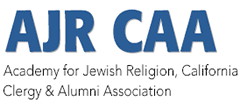Rabbi Fred Morgan: Vaetchanan
Rabbi Morgan writes about the message of the Sh’ma – the ultimate emphasis on the Oneness of God. He references Rashi, who separated the passage into 2 parts; that Israel will know God as “our God” and that “the nations will know God”…not that the other nations will become Jews, but that they will acknowledge the One God, and there will be unity among the nations. Yet the widespread Jewish community is not united.




